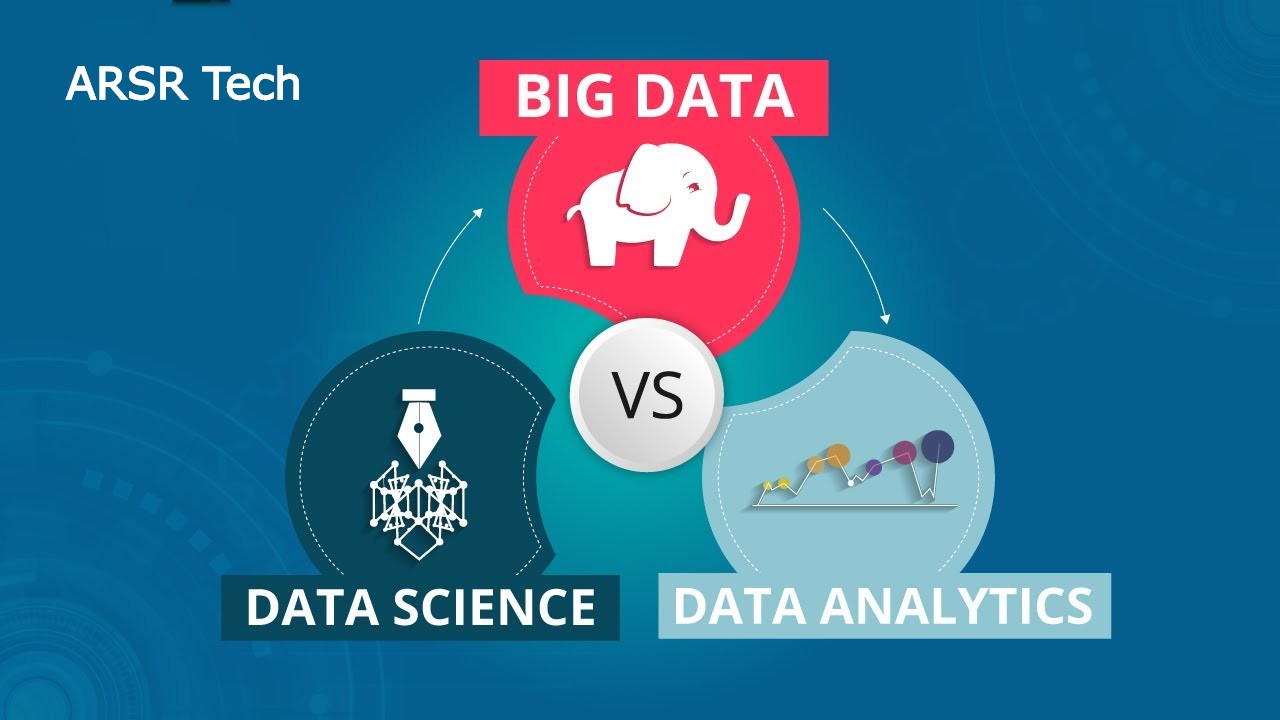Data & Analytics go hand in hand when it comes to enterprise activities. These are essential in driving business growth of companies because both data & its analysis gives crucial insights into various business activities.
However, in an age of rapid technological advancements, people can get confused about emerging technologies like AI, Machine Learning, Blockchain & data analysis techniques like big data, data analytics & data science.
If your company is planning to become a data-driven organization in the future, then you need to have a clear understanding of tools & technologies that can seamlessly give you actionable insights. So, if you invest the right amount of time & resources to understand such techniques & technology, then your enterprise can have a competitive edge over others.
Naturally, questions will arise when you research various analysis techniques:
- What is Data Science & How can it help my organization?
- What is Machine Learning? Can it help me to get critical data insights?
- Is Data Science different from Data Analytics?
- What is Structured & Unstructured Data?
So, let’s have a brief understanding of Data Science & Data Analytics, its core differences, Machine Learning & its usage in data analysis.
Is Data Science & Data Analytics the Same?
Data Science & Data Analytics are not new terms. In fact,
- Data Analysis techniques came to the fore in 1962. The term “Data Science” was first used by Peter Naur in 1974 & In 1992, the broad definition & core principles of Data Science were laid & acknowledged.
- Similarly, the processes that are now called Data Analytics has its origins in the late 1960s.
Superficially, both the terms might look the same. However, they have some core differences. Let’s know a little bit about Data Science & Data Analytics
What is Data Science?
Data Science is an extensive multidisciplinary field. Its primary focus is to help companies find unseen connections (pertaining to data) & questions related to it.
In layman terms, it is a field that looks for meaningful answers to various issues/questions that an enterprise faces. So, naturally, data scientists & engineers employ a gamut of processes to gain crucial insights from data – both structured & unstructured.
Usually, Data Scientists face a humongous task of analyzing huge amounts of data. So, to simplify the entire data analysis process, these skilled personnel leverage:
- Mathematical
- Scientific
- Statistical & various other techniques
To gain insights into data. Then cutting edge technologies like machine learning are coupled with predictive analytics to identify trends – for a particular product, operations efficiency & other purposes.
What is Data Analytics?
Data Analytics comes under Data Science. However, unlike data science which is a multidisciplinary field, data analytics focuses on a particular subject.
In this process, information is separated into two groups:
- Information that organizations already know
- Information that organizations do not know but they are aware of it.
So, in data analytics, various analysis processes on data sets are done to draw conclusions about the information it contains. This helps in extracting specific insights which are then leveraged to improve productivity & enhance business growth.
Data Science Vs Data Analytics – The Core Differences
- Data Science
Aim – Leverage data to formulate new questions
Generally Used Techniques – Classification & Cluster Analysis and Anomaly Detection
Prominent Applications – To identify & predict trends, clean the data & exploratory data analysis.
- Data Analytics
Aim – Utilizing data to search for specific answers (that are required to meet the company’s goals)
Generally Used Techniques – Regression Analysis, Network Analysis, Hypothesis Testing & Data Mining.
Prominent Applications – Clustering the data, classifying the information, predictive analytics & to compare trends.
Many companies that provide software development services offer Data Science & Data Analytics offerings together as they are somewhat related to each other.
What is Machine Learning?
As the name implies, machine learning is a cutting-edge technology that comprises enabling machines such as computers to learn & improve as humans do.
So, up until now, computers needed specific instructions to carry out tasks. But, with machine learning technology, computing systems can seamlessly learn about a particular task & carry it out efficiently.
Machine learning is also being leveraged by data scientists to identify particular data patterns. Once they identify them, they use it to predict future behavior & extract crucial data insights.
Such techniques are being used in government & healthcare sectors to improve marketing & sales processes. Many well-known Software development companies offer Machine Learning Services that can be used to simplify & streamline data analysis processes.
Prominent Machine Learning Methods for Data Analysis
Here are 4 well-known machine learning methods that are used for data analysis purposes:
- Reinforcement – This learning method is mostly used in the robotics & gaming industry.
- Supervised – It leverages historical data to predict events that will happen in the future. For example, insurance claims & credit card fraud.
- Unsupervised – In this method, data is fed & the computing system must learn about the data & derive insights.
- Semi-Supervised – It leverages unlabeled & labelled for training & learning.
Therefore Data Science, Data Analytics & Machine Learning can be seamlessly leveraged to streamline data analysis.
ARSR holds expertise in Software Development Services and offers Data Science, Data Analytics & Machine Learning Services to help enterprises leverage data & drive business growth.






